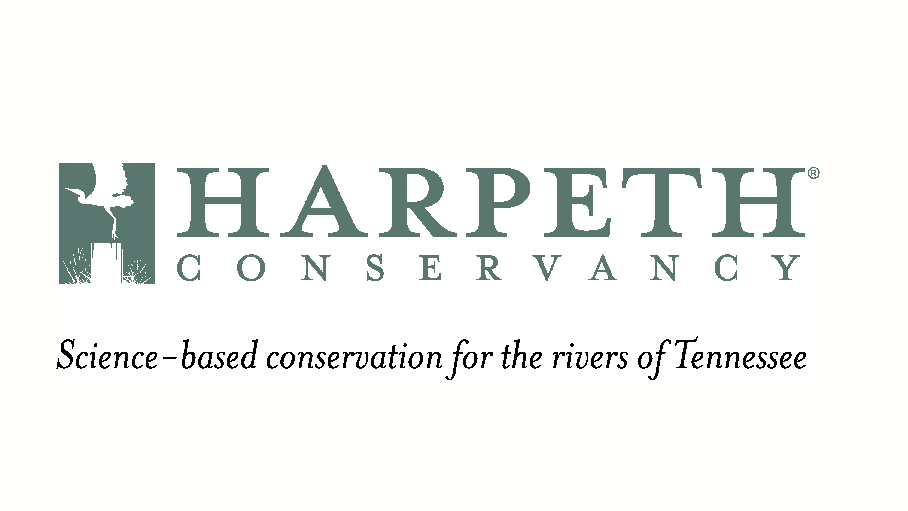This content has been archived. It may no longer be relevant
Contact: Dorie Bolze, Executive Director, 615-790-9767 or 615-479-0181, doriebolze@harpethriver.org Jim Redwine, Director, Water Quality Protection and Sustainability Program, 225-281-4089, jimredwine@harpethriver.org
FRANKLIN TO TAKE STEPS TO LIMIT POLLUTION FROM SEWER PLANT TO IMPROVE WATER QUALITY IN THE STATE SCENIC HARPETH RIVER
NASHVILLE, TN (August 17, 2016)– The Harpeth River Watershed Association (HRWA) announced that Judge Sharp of the US District Court in Nashville has approved the settlement of the federal Clean Water Act citizen suit brought by HRWA against the City of Franklin, TN in August 2014. The court-enforceable settlement is designed to bring Franklin into compliance with the terms of the state permit for the city’s sewage treatment plant. Franklin’s sewer plant is the largest single source of permitted discharge of pollutants into the State Scenic Harpeth River.
In 2015, American Rivers named the Harpeth River among America’s Most Endangered Rivers ® highlighting the threat sewage pollution and excessive water withdrawals pose to clean water and public health. The river’s water quality is impaired from unacceptably high levels of pollutants that feed harmful algae growth that can cause dangerous conditions for wildlife and public health according to the TN Department of Environment and Conservation.
“Protecting the Harpeth from threats of increasing pollution like those that have contributed to toxic situations around the country – and internationally — is central to HRWA’s mission,” said Matthew Dobson, Chairman of HRWA’s Board of Directors. “This court-enforceable settlement, if faithfully implemented by Franklin, will improve the water quality of this very popular Tennessee State Scenic river resource flowing through Nashville and one of the fastest growing regions of our state and country.”
The settlement begins the next stage of a broad community effort to restore the State Scenic Harpeth River. Franklin and HRWA have already agreed on locations for water quality monitoring in the river as required, and Franklin is in the process of installing the equipment based on the state’s approval. Such information is essential to the new pollution reduction planning process for the entire Harpeth River that has been put in motion with the settlement. The TN Department of Environment and Conservation (TDEC) announced the start of this effort, called a “Total Maximum Daily Load” last year, with HRWA, Franklin, USEPA, and the US Geological Survey as the core partners. The process of formulating the TMDL plan will require several years of significant joint time and effort to determine how much pollutant the Harpeth River can receive and still meet water quality standards, and to allocate that pollutant load among the various sources.
“This successful settlement is one of many significant milestones over our 15 years that have already resulted in improving water quality in one of America’s Most Endangered Rivers,” said Dorene Bolze, HRWA’s Executive Director. “We are very grateful to our supporters, and to our partner, the Southern Environmental Law Center, for their excellent work in representing us in this important matter. In particular, SELC’s work in winning the dismissal of Franklin’s counter lawsuit against HRWA, which prolonged the litigation, validated citizen’s rights to be involved in government decision-making, now also under threat in other states. Our efforts have led to the launching of the first comprehensive pollution reduction plan for an entire river system in the Southeast. We are also now working with Franklin and TDEC on establishing conditions for the new permit for the expansion of Franklin’s sewage treatment plant, which needs to reduce pollution loads in the river. “
Highlights from the Lawsuit Settlement Agreement
Provisions from the federal court-enforceable settlement include these requirements for Franklin to do more to protect public health and improve the river’s water quality:
1) Study and monitor the river’s water quality, including fulfilling obligations that have been in Franklin’s current permit since 2010.
2) Participate along with HRWA and other agencies in the formulation of a new pollution reduction plan (called a “Total Maximum Daily Load” or “TMDL”) led by TDEC for the entire river. This TMDL plan will “fairly determine [Franklin’s pollution load allocation] in the context of the entire watershed.”
3) Fund up to $150,000 to conduct studies in support of the TMDL pollution reduction plan.
4) Conduct an “optimization study” for the current sewage treatment plant focused on reducing phosphorus and nitrogen inputs to the river to reduce the risk of harmful algal blooms. The City also agreed to prioritize the installation of portions of the new sewage treatment facility up front to have the ability to remove phosphorus to low levels.
5) Spend $10 million over five (5) years as a part of Franklin’s planned capital investment planning efforts to prioritize the upgrading of existing, aging sewer collection infrastructure. HRWA will have input to this process. Franklin also will use emerging technologies to identify and prioritize improvements in the sewer collection system.
6) Develop a sewer overflow response plan, similar to those already implemented in many other Tennessee cities. This plan is designed to reduce public health risks from exposure to raw sewage and increase public transparency regarding sewer overflow issues.
7) There will be no increases in sewer rates based on the lawsuit, counterclaims, or the settlement.
Both the HRWA and SELC followed through on their offers to Franklin prior to the filing of the lawsuit and agreed not to collect any attorney’s fees so that the city’s financial resources would be directed toward restoring the river. HRWA’s and SELC’s extended their offer and also agreed not to collect fees for the defense against Franklin’s highly unusual counter-suit of abuse of process against HRWA. Federal Judge Sharp dismissed Franklin’s counter-suit against HRWA in November 2015. HRWA also agreed that it would not receive any money as a result of river study projects funded by Franklin.
The settlement that HRWA achieved has resulted in the reversal of a number of positions taken by Franklin over several years. For example, in its 2013 comments to the state on the proposed new permit conditions Franklin opposed the proposed lower limits for phosphorus and the current permit’s requirement to perform an optimization study to find ways for the current sewage treatment plant to reduce phosphorus and nitrogen discharge into the river. In addition, Franklin had opposed the current permit’s 24-hour water quality monitoring of the river, which is needed to determine the impact of Franklin’s sewer plant pollutant discharge on the river and set appropriate permit conditions.
About the Harpeth River Watershed Association
Founded in 1999, The Harpeth River Watershed Association (HRWA) is a 501(c)(3) not-for-profit, science-based conservation organization dedicated to protecting the State Scenic Harpeth River and clean water in Tennessee. The Harpeth is among the unique freshwater river systems of the Southeast which contain one of the greatest variety of aquatic life in the world. To affect change, HRWA collaborates with landowners, businesses, community, local, state, and federal decision makers and others to put solutions in place to maintain healthy landscapes, reduce pollution, and implement restoration in order to achieve water quality standards set to protect public health and wildlife. The 125 mile-long State Scenic Harpeth River and over 1,000 miles of tributaries flow through both rural landscapes and rapidly developing urban and suburban areas of the greater Nashville region, one of the fastest growing regions of the country. www.harpethriver.org.










